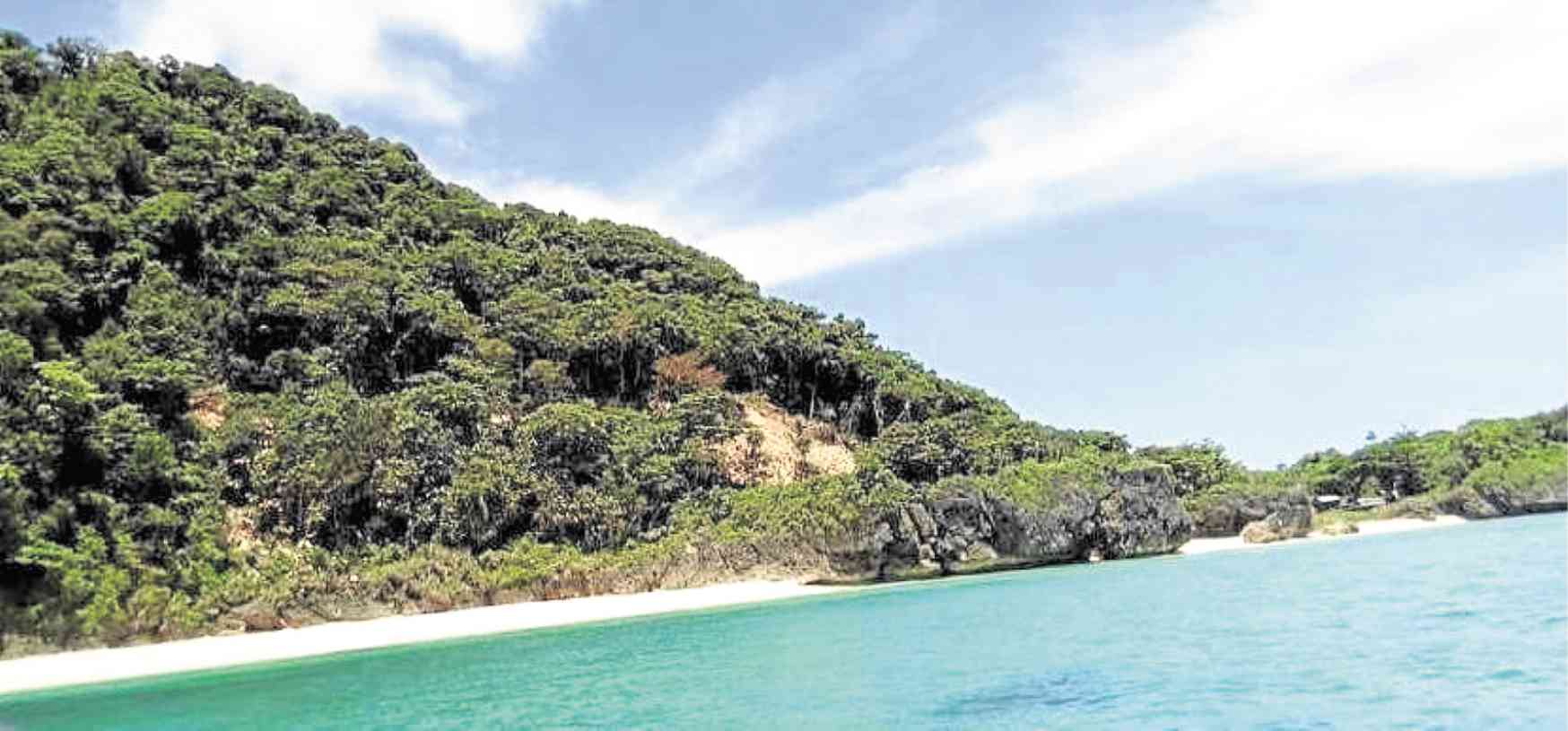
Photos posted on Facebook by the group Friends of the Flying Foxes (FFF) show a cleared portion of a forested area near a bat sanctuary in Puka Shell beach in Boracay Island. —PHOTO COURTESY OF FFF
ILOILO CITY — The Department of Environment and Natural Resources (DENR) has started investigating reports that a section of a forested area on Boracay Island, known as a sanctuary for endangered fruit bats, was cleared.
“If the area cleared is part of the bats roosting site, then that is illegal,” said Jim Sampulna, DENR Western Visayas executive director.
Sampulna directed the Provincial Environment and Natural Resources Office in Aklan to verify a report of the group Friends of the Flying Foxes (FFF) that an area near the Puka Shell beach in the village of Yapak was cleared by a private developer.
FFF posted pictures on Facebook showing a cleared area in the middle of a forest near the beach.
“The landowner knows that the area is extremely sensitive and included in a no-building zone as (it is) the center of the bat roost site,” the conservation group said.
The area is considered the last remaining forest on the 1,032-hectare Boracay Island.
Roosting site
It serves as the roosting site of the Golden-Crowned Flying Fox (Aceradon jubatus), which is endemic to the Philippines but has been categorized as among the endangered fruit bats species worldwide by the International Union for Conservation of Nature Red List.
The population of the bats, called flying foxes because they resemble foxes with wings, had declined mainly due to human activity and disturbance of their habitat.
From an estimated 15,000 in 1986, the number of bats dramatically dropped to 2,997 based on the last official count conducted on May 7, 2016.
The fruit bats in Boracay are critical for the ecosystem not only of Boracay but also of Panay Island. They are essential for pollination and keeping the insect population under control.
FFF and other environmental groups had been calling on the government to declare the area a wildlife sanctuary and natural park to ensure the protection of the bats and forest.
FFF said the bats needed a 200-meter buffer zone to their nearest roost site to be shielded from human activity.
Spare the bats
Sampulna said the bat roosting site is part of a privately-owned area that has recently been sold to a developer.
He said there was a memorandum of agreement with the previous owner that part of the property where the bats are should not be developed.
“Since it is privately-owned, we can only appeal to the new owner to honor the agreement. They agreed to do that,” Sampulna said.
He said he was checking if recent construction activity in the area was covered by an environmental compliance certificate (ECC).
An ECC is a document issued by the DENR certifying that the project that applied for the certificate would not harm the environment.

